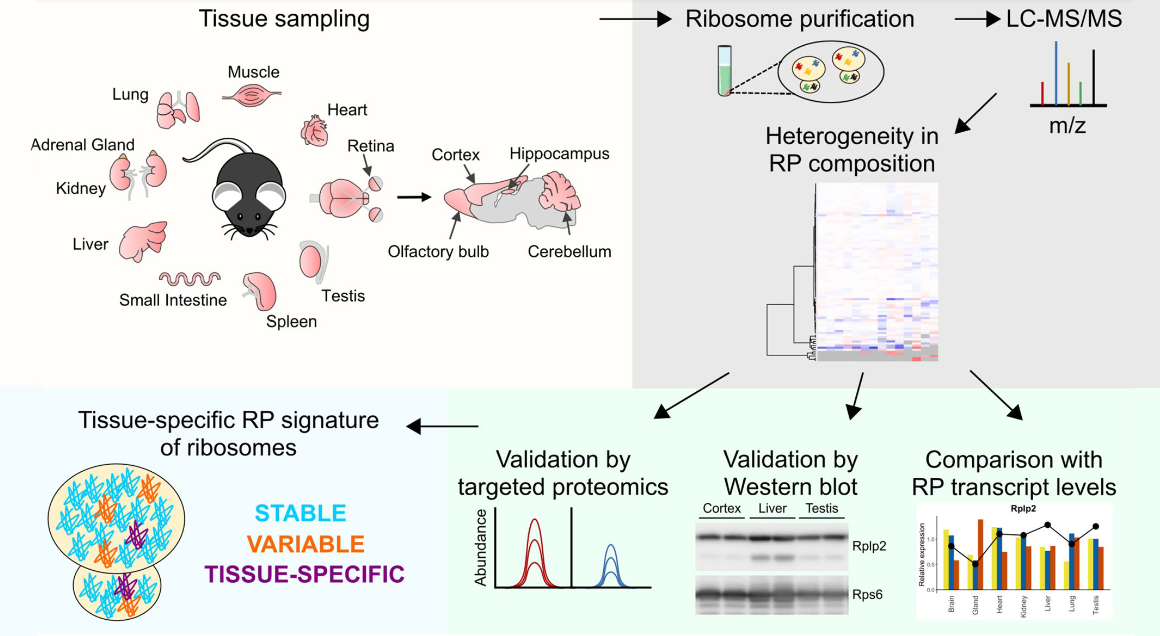- Share
- Share on Facebook
- Share on X
- Share on LinkedIn
Communiqué / Team S.Belin, Research
On May 15, 2025

GIN researchers have shown that ribosomal protein composition varies according to organ, providing data to support the concept of specialized ribosomes.
For a long time, it was thought that ribosomes that decode the genetic information by translating messenger RNA (mRNA) into proteins were capable of translating any mRNA and that this translation process was therefore similar in all cellular organisms. But there is now increasing evidence suggesting that ribosomes vary in their composition (depending on the stage of development, the type of cell or the physio-pathological context). These characteristics could help to regulate gene expression.
Thanks to a study carried out jointly by the Team "Translation regulation in normal and pathological conditions" lead by Stéphane Belin and the EDyP-Service proteomic analysis platform (BGE, CEA) lead by Yohann Couté, GIN researchers isolated and analysed ribosomes from 14 adult mouse organs using mass spectrometry: cortex, hippocampus, olfactory bulb, cerebellum, retina, liver, heart, quadriceps, lung, spleen, kidney, intestine, testis and adrenal gland, in order to identify and list specific disparities.
Their discovery is very clear: ribosomal proteins composition varies from one organ to another. Not all ribosomes are identical from one tissue to another.
But what stunned the researchers the most was that this specialisation was not explained by differences in classic gene expression: it was also regulated at the post-transcriptional level. These results therefore provide solid evidence in favour of the concept of specialised ribosomes, capable of adapting their composition to the specific translation needs of each cell type or tissue.
Specialised ribosomes could therefore play a key role in cell and tissue specification. They could also influence the proteins produced as a function of the biological context, playing a key role in the regulation of gene expression. ‘We are very enthusiastic about the idea of continuing this research to better understand how and why these specialised ribosomes are formed, and what impact they have on physiology and pathology’ said Stéphane Belin.
Date
- Share
- Share on Facebook
- Share on X
- Share on LinkedIn